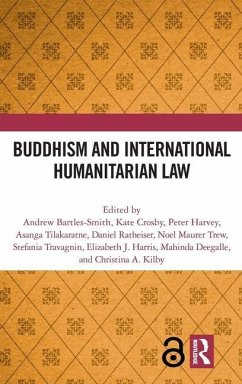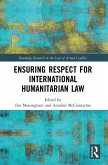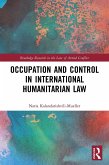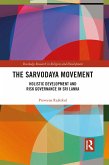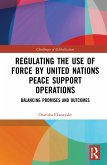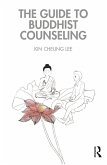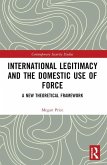What guidance can Buddhism provide to those involved in armed conflict and to belligerents who must perhaps kill or be killed or defend their families, communities or countries from attack? How, moreover, does Buddhism compare with international humanitarian law (IHL) - otherwise known as the law of armed conflict - which protects non-combatants and restricts the means and methods of warfare to limit the suffering it causes?
Despite the prevalence of armed conflict in parts of the Buddhist world, few contemporary studies have addressed these questions. While there is a wealth of material on Buddhist conflict prevention and resolution, remarkably little attention has been paid to what Buddhism says about the actual conduct of war. IHL is also still relatively little known in the Buddhist world and might not therefore influence the behaviour of belligerents who self-identify as Buddhists and are perhaps more likely to be guided by Buddhist principles. This ground-breaking volume is part of an International Committee of the Red Cross project which seeks to fill this gap by exploring correspondences between Buddhist and IHL principles, and by identifying Buddhist resources to improve compliance with IHL and equivalent Buddhist or humanitarian norms.
This book will be of much interest to students and researchers of International Law, Buddhism, Ethics as well as War and Conflict studies. The chapters in this book were originally published as a special issue of Contemporary Buddhism.
The Open Access version of this book, available at https://www.taylorfrancis.com/books/oa-edit/10.4324/9781003439820/buddhism-international-humanitarian-law-andrew-bartles-smith-kate-crosby-peter-harvey-asanga-tilakaratne-daniel-ratheiser-noel-maurer-trew-stefania-travagnin-elizabeth-harris-mahinda-deegalle-christina-kilby, has been made available under a Creative Commons Attribution-Non Commercial-No Derivatives (CC-BY-NC-ND) 4.0 license. A version of the open access title is also available on the OAPEN platform, https://library.oapen.org/handle/20.500.12657/75921
Despite the prevalence of armed conflict in parts of the Buddhist world, few contemporary studies have addressed these questions. While there is a wealth of material on Buddhist conflict prevention and resolution, remarkably little attention has been paid to what Buddhism says about the actual conduct of war. IHL is also still relatively little known in the Buddhist world and might not therefore influence the behaviour of belligerents who self-identify as Buddhists and are perhaps more likely to be guided by Buddhist principles. This ground-breaking volume is part of an International Committee of the Red Cross project which seeks to fill this gap by exploring correspondences between Buddhist and IHL principles, and by identifying Buddhist resources to improve compliance with IHL and equivalent Buddhist or humanitarian norms.
This book will be of much interest to students and researchers of International Law, Buddhism, Ethics as well as War and Conflict studies. The chapters in this book were originally published as a special issue of Contemporary Buddhism.
The Open Access version of this book, available at https://www.taylorfrancis.com/books/oa-edit/10.4324/9781003439820/buddhism-international-humanitarian-law-andrew-bartles-smith-kate-crosby-peter-harvey-asanga-tilakaratne-daniel-ratheiser-noel-maurer-trew-stefania-travagnin-elizabeth-harris-mahinda-deegalle-christina-kilby, has been made available under a Creative Commons Attribution-Non Commercial-No Derivatives (CC-BY-NC-ND) 4.0 license. A version of the open access title is also available on the OAPEN platform, https://library.oapen.org/handle/20.500.12657/75921
"This book is an extraordinary collaboration between monastics, military chaplains, experts in international humanitarian law, and elite scholars of Buddhist ethics from diverse cultural contexts. As such, it is a valuable primary text that documents the current range of thinking about Buddhist conduct during warfare. The project produced broad intercultural and multi-perspectival cross pollination on this vital current topic, and it is essential reading for anyone working in this area. As in classical Buddhist texts, these rich studies recognise that the ethical conduct of war is as important to address as its prevention."
Stephen Jenkins, Humboldt State University, USA
"Though both Buddhism and international humanitarian law have exactly the same intention to reduce human suffering, this ICRC-supported book represents the first concerted effort to bring them together. Internationally well-known scholars of both Buddhism and IHL have now started to engage in open and enlightening dialogue between the two domains, and this breakthrough work shows what they have revealed so far."
Khammai Dhammasami, Shan State Buddhist University, Myanmar
"International humanitarian law (IHL) speaks profoundly to ideas of common humanity and the need for restraint during war. These concepts are found in religious and cultural teachings across the globe. 'Buddhism and International Humanitarian Law' is a unique, necessary and timely contribution to scholarship aiming to find stronger traction between religious principles, humanitarian norms and rules of IHL. In examining the interface between Buddhism and IHL, reflecting on warfare in Buddhist history, and looking at ways to explain and teach IHL differently, this important book adds weight to the aspiration of reducing suffering during times of armed conflict."
Helen Durham AO, Geneva Call, Switzerland
"As a religion of peace, there is a conundrum concerning whether Buddhism also has a message for the conduct of war. The rich panoply of articles in this volume shows that it does. Notions of compassion, kindness and tolerance emanating from Buddhist roots all help to undergird core IHL principles such as distinction, military necessity, proportionality and precaution, thereby helping to protect those not directly involved in hostilities. This pioneering book illustrates how the Buddhist middle-way and its mindfulness techniques can nurture the self-control and sense of moderation necessary to humanise war and prevent its worst excesses."
Vitit Muntarbhorn, Chulalongkorn University, Thailand
Stephen Jenkins, Humboldt State University, USA
"Though both Buddhism and international humanitarian law have exactly the same intention to reduce human suffering, this ICRC-supported book represents the first concerted effort to bring them together. Internationally well-known scholars of both Buddhism and IHL have now started to engage in open and enlightening dialogue between the two domains, and this breakthrough work shows what they have revealed so far."
Khammai Dhammasami, Shan State Buddhist University, Myanmar
"International humanitarian law (IHL) speaks profoundly to ideas of common humanity and the need for restraint during war. These concepts are found in religious and cultural teachings across the globe. 'Buddhism and International Humanitarian Law' is a unique, necessary and timely contribution to scholarship aiming to find stronger traction between religious principles, humanitarian norms and rules of IHL. In examining the interface between Buddhism and IHL, reflecting on warfare in Buddhist history, and looking at ways to explain and teach IHL differently, this important book adds weight to the aspiration of reducing suffering during times of armed conflict."
Helen Durham AO, Geneva Call, Switzerland
"As a religion of peace, there is a conundrum concerning whether Buddhism also has a message for the conduct of war. The rich panoply of articles in this volume shows that it does. Notions of compassion, kindness and tolerance emanating from Buddhist roots all help to undergird core IHL principles such as distinction, military necessity, proportionality and precaution, thereby helping to protect those not directly involved in hostilities. This pioneering book illustrates how the Buddhist middle-way and its mindfulness techniques can nurture the self-control and sense of moderation necessary to humanise war and prevent its worst excesses."
Vitit Muntarbhorn, Chulalongkorn University, Thailand

